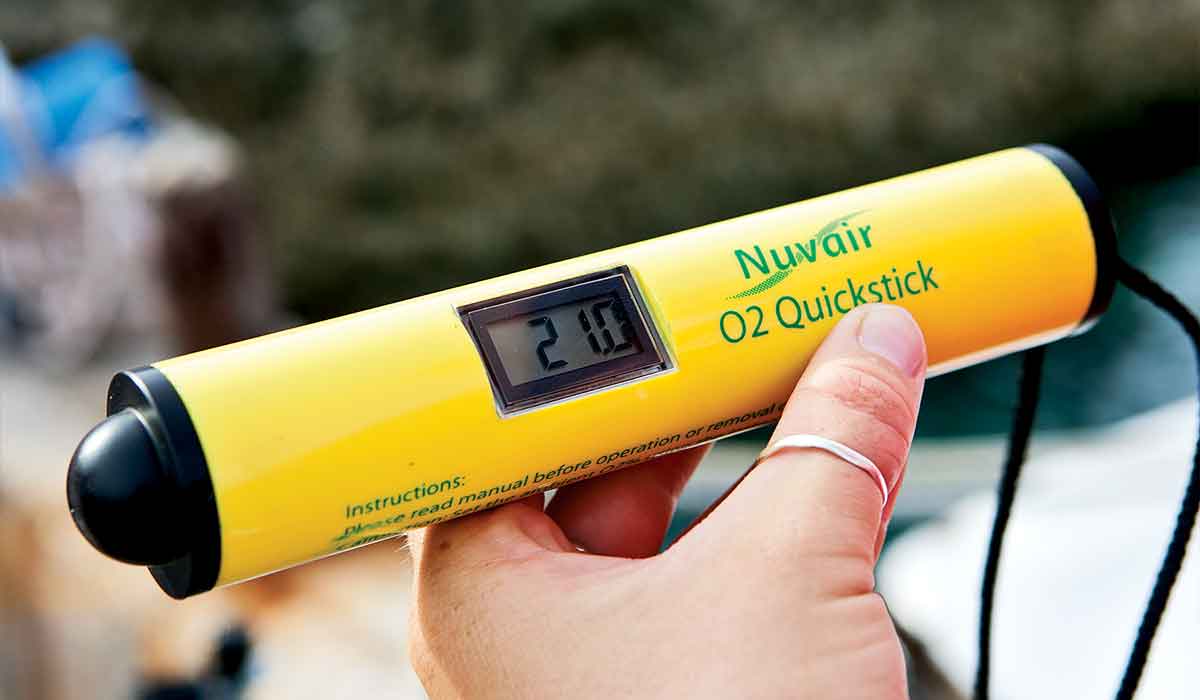THAT is what you learn in a Nitrox class.What are these new and or increased risks you speak of in shallow less than say 30M Dives?
You are using an out of date browser. It may not display this or other websites correctly.
You should upgrade or use an alternative browser.
You should upgrade or use an alternative browser.
Diving 32% Nitrox with "Air" Algorithms
- Thread starter NW Dive Dawg
- Start date
Please register or login
Welcome to ScubaBoard, the world's largest scuba diving community. Registration is not required to read the forums, but we encourage you to join. Joining has its benefits and enables you to participate in the discussions.
Benefits of registering include
- Ability to post and comment on topics and discussions.
- A Free photo gallery to share your dive photos with the world.
- You can make this box go away
Another wise and informative post.THAT is what you learn in a Nitrox class.
Aside from oxygen toxicity acute from high ppo2, and cumulative from excessive number of repetitive dives? Which we have already covered?Another wise and informative post.
"By reducing the amount of nitrogen in the breathing gas and replacing it with a gas the body metabolizes anyway, nitrox can lower the risk of DCS or even safely extend a diver’s bottom time, but it’s important to realize both cannot be done at the same time."For at least the last decade DAN has been suggesting using nitrox with air tables as a way to increase conservatism. It's fine and both CNS and pulmonary toxicity is basically a non-issue in non-deco nitrox diving. With modern computers you are probably better served to just reduce your GFhigh or bump up your conservatism setting. But either way there's 20 pages of drama here over nothing lol
"Given the role nitrogen plays in certain concerns for divers, including nitrogen narcosis and decompression sickness (DCS), it’s easy to see why reducing one’s exposure to it might be appealing. By reducing the amount of nitrogen in the breathing gas and replacing it with a gas the body metabolizes anyway, nitrox can lower the risk of DCS or even safely extend a diver’s bottom time, but it’s important to realize both cannot be done at the same time.
The decreased risk of DCS comes from a fairly simple concept: By reducing the amount of nitrogen in the gas mix, the diver absorbs less nitrogen into his tissues. Compared to the risk the diver would face diving the same profile on air, DCS risk is lower using nitrox, though the risk is not eliminated completely. To take advantage of the increased safety margin, divers can simply plan a dive as though using air and execute the dive using nitrox, though the MOD of the actual gas mix used must be observed."

Nitrox
Nitrox, or enriched air, is a valuable tool for recreational divers. Use of nitrox can lower the risk of decompression sickness. Read more about nitrox.dan.org
I always get a kick out of this statement. Why can't you do both? We do, dive after dive.
- Messages
- 14,192
- Reaction score
- 11,457
- Location
- Port Orchard, Washington State
- # of dives
- 1000 - 2499
You can't do both."By reducing the amount of nitrogen in the breathing gas and replacing it with a gas the body metabolizes anyway, nitrox can lower the risk of DCS or even safely extend a diver’s bottom time, but it’s important to realize both cannot be done at the same time."
I always get a kick out of this statement. Why can't you do both? We do, dive after dive.
If you dive up to the NDLs for nitrox your DCS risk is not (measurably) less than your DCS risk for diving up to the NDLs for air. Your 20min NDL on air at 100ft is functionally equal N2 accumulation to 30min NDL on 32% at 100ft. That's the entire basis for nitrox tables which were derived via the "equivalent air depth".
If you want to be more conservative, using nitrox, you have to accept less bottom time compared to the nitrox NDL.
Really? How about 60 feet for 70 minutes on 36%. More time, less nitrogen. I get both.You can't do both.
If you dive up to the NDLs for nitrox your DCS risk is not (measurably) less than your DCS risk for diving up to the NDLs for air. Your 20min NDL on air at 100ft is functionally equal N2 accumulation to 30min NDL on 32% at 100ft. That's the entire basis for nitrox tables which were derived via the "equivalent air depth".
If you want to be more conservative, using nitrox, you have to accept less bottom time compared to the nitrox NDL.
- Messages
- 14,192
- Reaction score
- 11,457
- Location
- Port Orchard, Washington State
- # of dives
- 1000 - 2499
You've backed off from the nitrox NDL which is what DAN is trying to point out - in super basic language. But hey we are only up to 22 pages of this nothingburger so carry on.Really? How about 60 feet for 70 minutes on 36%. More time, less nitrogen. I get both.
And I got both.You've backed off from the nitrox NDL which is what DAN is trying to point out - in super basic language. But hey we are only up to 22 pages of this nothingburger so carry on.
Similar threads
- Replies
- 86
- Views
- 9,552
- Replies
- 23
- Views
- 3,100
- Replies
- 91
- Views
- 11,846



